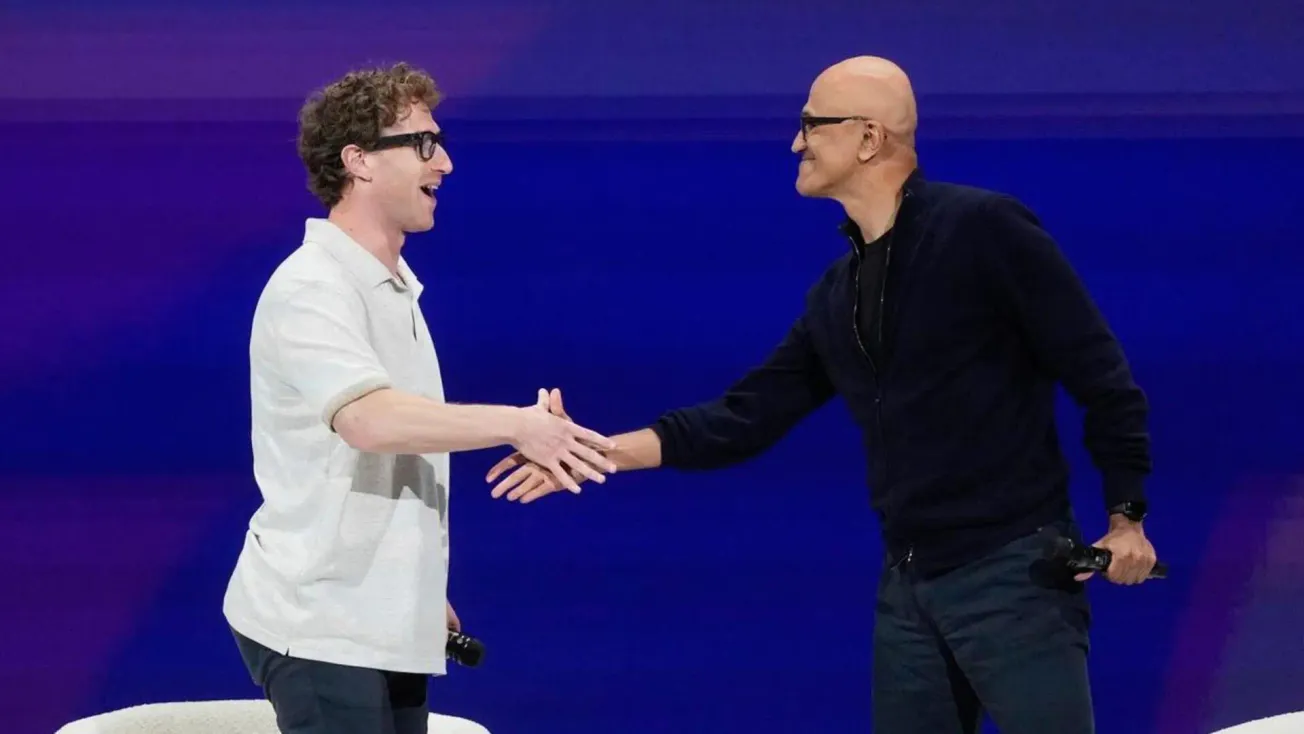Table of Contents
Artificial intelligence is rapidly reshaping the landscape of software engineering, with Microsoft and GitHub Copilot leading the charge. This article explores how AI-generated code is revolutionizing workflows, why Python and C++ are affected differently, and what industry leaders predict for the future of coding.
Key Takeaways
- AI now generates between 20% and 30% of code in Microsoft’s repositories, with the percentage expected to rise rapidly.
- Python excels as an AI coding language due to its simplicity and robust ecosystem, while C++ remains essential for performance-critical applications.
- GitHub Copilot has become a major revenue driver, accounting for over 40% of GitHub’s revenue growth and reaching a $2 billion annual run rate.
- Microsoft CTO Kevin Scott predicts that within five years, 95% of code could be AI-generated, fundamentally changing the developer’s role.
- The rise of AI code generation is democratizing software development, making it more accessible while shifting human focus to higher-level problem-solving.
- Enterprise adoption of AI coding assistants is accelerating, with Copilot attracting over 1.3 million paid users and 50,000 enterprise customers.
- Despite rapid growth, AI coding tools face challenges in certain languages and require careful integration into existing workflows.
AI’s Growing Role in Microsoft’s Codebase
- Microsoft CEO Satya Nadella reports that AI now generates 20% to 30% of the code across Microsoft’s repositories, a figure that has grown significantly in recent years.
- The effectiveness of AI code generation varies by programming language, performing exceptionally well with Python but facing more challenges with languages like C++.
- This shift is not just about automating repetitive tasks; it is fundamentally changing how developers interact with code and software systems.
- AI-powered tools are enabling teams to accelerate development cycles, reduce manual errors, and focus on more creative or complex aspects of engineering.
- The adoption of AI-generated code is expected to continue rising, with Microsoft investing heavily in integrating AI into its developer ecosystem.
The integration of AI into Microsoft’s codebase represents a major milestone in the evolution of software engineering and sets the stage for broader industry transformation.
Python vs C++: The AI Coding Divide
- Python has become the language of choice for AI development due to its readable syntax, extensive libraries (such as TensorFlow and PyTorch), and rapid prototyping capabilities.
- Developers using Python benefit from shorter development cycles and easier experimentation, making it ideal for research and fast-paced projects.
- C++ continues to be indispensable for applications requiring high performance, low latency, or real-time processing, such as embedded systems and game engines.
- The trade-off with C++ is a steeper learning curve, more complex memory management, and longer development times compared to Python.
- Many organizations use both languages strategically: Python for prototyping and AI model development, and C++ for optimizing performance-critical components.
- The choice between Python and C++ often depends on the specific requirements of the project, balancing speed of development with computational efficiency.
While Python leads in AI-driven coding, C++ remains crucial for scenarios where every microsecond of performance matters.
Kevin Scott’s Vision: 95% AI-Generated Code by 2030
- Microsoft CTO Kevin Scott predicts that within five years, 95% of code could be generated by AI, radically transforming the software development process.
- Scott emphasizes that AI will not replace software engineers, but will shift their focus from writing code to designing, orchestrating, and prompting AI systems.
- He compares this transition to the move from Assembly language to high-level programming languages in the 1980s, which democratized software development.
- Developers will evolve from “input masters” of programming languages to “prompt masters” who guide and supervise AI systems in generating code.
- This shift is expected to make software development more accessible, allowing a broader range of people to create applications and solutions.
- Experienced engineers will be able to concentrate on higher-level architectural decisions, creative problem-solving, and ensuring the quality of AI-generated code.
Scott’s vision suggests a future where human ingenuity and AI capabilities work hand-in-hand to accelerate innovation across industries.
GitHub Copilot’s Revenue Surge and Enterprise Adoption
- GitHub Copilot has rapidly grown into a major revenue generator for Microsoft, accounting for over 40% of GitHub’s revenue growth in 2024.
- The platform’s annual revenue run rate has reached $2 billion, with Copilot surpassing $100 million in annual recurring revenue by late 2023.
- Copilot’s user base has expanded to 1.3 million paid subscribers and 50,000 enterprise customers, including major firms like Accenture, Goldman Sachs, Etsy, and Dell Technologies.
- The tool’s adoption reflects a broader trend of enterprises embracing AI coding assistants to boost productivity and streamline workflows.
- Despite competition from alternatives like AWS CodeWhisperer and Google’s Codey API suite, Copilot remains the leading AI code companion.
- Microsoft executives have refuted claims of profitability challenges, instead highlighting Copilot’s rapid growth and strategic importance.
The financial success of Copilot underscores the growing demand for AI-powered development tools in the global software industry.
The Changing Role of the Software Engineer
- As AI takes over more of the coding workload, the role of software engineers is shifting toward higher-level tasks such as system design, code review, and AI supervision.
- Engineers are increasingly required to become “prompt masters,” skilled at instructing AI systems to generate reliable, maintainable, and secure code.
- This evolution is expected to democratize software development, enabling more people to participate in building digital solutions without deep coding expertise.
- Human oversight remains critical for ensuring the correctness, security, and ethical use of AI-generated code.
- The collaborative relationship between developers and AI tools is likely to foster new workflows, best practices, and career paths within the tech industry.
- Organizations will need to invest in training and upskilling to ensure their teams can effectively leverage AI-powered development environments.
The transformation of the software engineering profession is both an opportunity and a challenge, requiring adaptability and continuous learning.
AI-generated code is rapidly transforming software development, with Microsoft and GitHub Copilot at the forefront of this revolution. As AI takes on a larger share of coding, developers must adapt to new roles, ensuring human creativity and oversight remain central to the future of software engineering.
Sources consulted: CIO Dive, X, LinkedIn, ZKNET, The Information, Ark Invest






